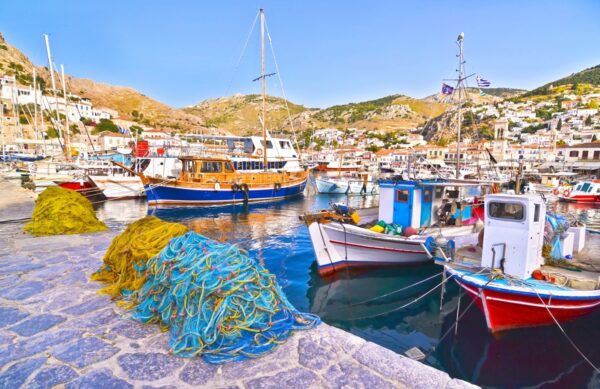Greece aims to be the ‘first in Europe’ to ban bottom trawling in marine protected areas as part of 21 initiatives worth 780 million euros.
Greece has the longest Mediterranean coastline and plans to create two marine parks, one in the Ionian Sea and one in the Aegean Sea, along with efforts to tackle coastal pollution, Prime Minister Kyriakos Mitsotakis said at the Our Ocean conference in Greece this week.
The Prime Minister went on to say that Greece will ban bottom trawling in all of its marine protected areas (MPAs) by 2030. The EU Marine Action Plan asks countries to set out national roadmaps to ban bottom trawling in MPAs, starting with those with ecologically important seabed features by the end of 2024, and across all MPAs by 2030.
He also pledged that by 2030, Greece will reduce plastic pollution in the water by 50% and microplastics by 30% compared to 2019 levels.
More than 400 new commitments amounting to $10 billion will be announced during the conference, said a government official, speaking on condition of anonymity, Reuters reported.
Reaction from neighbours and NGOs
The plan has irritated Greece’s neighbour, Turkey, while some environmental organisations say the initiative doesn’t go far enough, noting that the country also allows environmentally harmful practices such as energy exploration in sensitive marine environments.
The conference “must not be simply an opportunity for governments to congratulate themselves for what they have said until now,” said Nikos Charalambidis, head of Greenpeace in Greece. Organisations have criticised Greece for allowing deep-sea seismic exploration for energy and mineral resources in the Hellenic Trench, which includes the deepest waters in the Mediterranean, ABCnews reported.
Turkey’s foreign ministry accused Athens of exploiting environmental issues to push its geopolitical agenda. Ankara responded with annoyance to Greece’s plan for a marine park in the Aegean.
“It is known that Greece has long been trying to benefit from almost every platform in the context of Aegean problems,” the Turkish Foreign Ministry said, reported ABCnews. “Despite the recent softening in our relations, it appears that Greece is exploiting environmental issues this time.”
In more positive comments, National Geographic explorer in residence and founder of its Pristine Seas initiative, Enric Sala, reported in EuroNews, said: “This historic move – a first for Europe – brings the country one step closer to ensuring that its marine protected areas can deliver the full potential of their benefits, which range from protecting biodiversity and storing carbon to boosting the tourism and fishing industries”.
